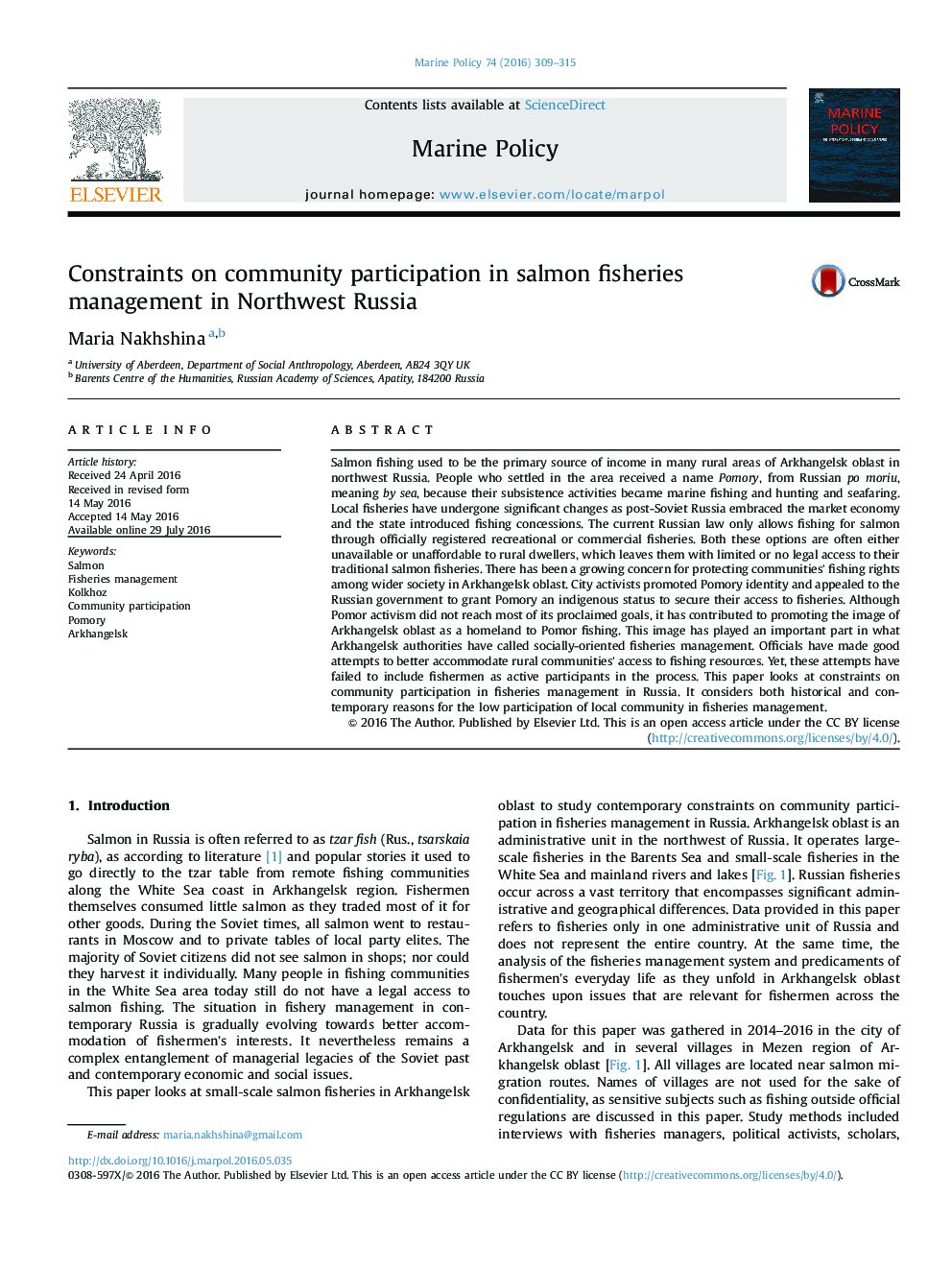| کد مقاله | کد نشریه | سال انتشار | مقاله انگلیسی | نسخه تمام متن |
|---|---|---|---|---|
| 5118213 | 1485505 | 2016 | 7 صفحه PDF | دانلود رایگان |
- People in northwest Russia lose access to salmon fisheries in post-Soviet period.
- Activists promote Pomor identity and indigenous status to secure access.
- Managers make attempts to accommodate people' access to salmon fisheries.
- Ultimate users of resources remain largely excluded from fisheries management.
Salmon fishing used to be the primary source of income in many rural areas of Arkhangelsk oblast in northwest Russia. People who settled in the area received a name Pomory, from Russian po moriu, meaning by sea, because their subsistence activities became marine fishing and hunting and seafaring. Local fisheries have undergone significant changes as post-Soviet Russia embraced the market economy and the state introduced fishing concessions. The current Russian law only allows fishing for salmon through officially registered recreational or commercial fisheries. Both these options are often either unavailable or unaffordable to rural dwellers, which leaves them with limited or no legal access to their traditional salmon fisheries. There has been a growing concern for protecting communities' fishing rights among wider society in Arkhangelsk oblast. City activists promoted Pomory identity and appealed to the Russian government to grant Pomory an indigenous status to secure their access to fisheries. Although Pomor activism did not reach most of its proclaimed goals, it has contributed to promoting the image of Arkhangelsk oblast as a homeland to Pomor fishing. This image has played an important part in what Arkhangelsk authorities have called socially-oriented fisheries management. Officials have made good attempts to better accommodate rural communities' access to fishing resources. Yet, these attempts have failed to include fishermen as active participants in the process. This paper looks at constraints on community participation in fisheries management in Russia. It considers both historical and contemporary reasons for the low participation of local community in fisheries management.
Journal: Marine Policy - Volume 74, December 2016, Pages 309-315
